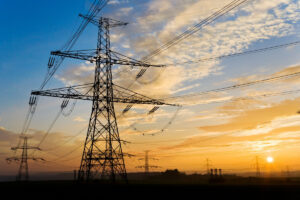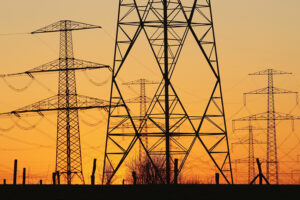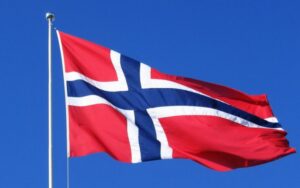
NEC Ukrenergo plans on Monday, September 2, to apply electricity restrictions for all regions in 1-2 queues throughout the day, NEC Ukrenergo said in Telegram.
In particular, from 00:00 to 16:00 there will be one queue of disconnections, from 16:00 to 24:00 – two.

Starting Monday, August 25, Ukraine may return to exporting electricity during daytime hours when the power system has a surplus, NPC Ukrenergo reported on Telegram.
According to the company, this is facilitated by a decrease in heat and, as a result, electricity consumption, as well as the early completion of the scheduled repair of one of the units of nuclear power plants. At the same time, solar power plants are actively operating during the daytime.
Ukrenergo reminded that in order to avoid accidents, the power system must operate in a balanced manner – the amount of energy produced every minute must correspond to the amount of consumed resource.
“Given the economic inexpediency of limiting the operation of solar power plants, starting from August 25, Ukraine plans to resume electricity exports to neighboring countries. Tomorrow, an auction will be held for access to interstate crossings in the directions of Romania, Hungary and Moldova,” the NPC said.
Electricity will be exported exclusively during the period of surplus – during the active operation of SPPs. During periods of maximum consumption, when there is not enough capacity in the power system, electricity will not be exported from Ukraine.
Source: https://interfax.com.ua/

The amount of electricity generated in China in July rose 2.5% year-on-year to a record 883.1 billion kWh, according to the State Statistics Office.
Including generation at hydroelectric power plants jumped 36.2% (to 166.4 billion kWh), at solar power plants – 16.4%, at nuclear power plants – 4.3%. Meanwhile, electricity production at thermal power plants fell by 4.9% (to 574.9 billion kWh).
In January-July, the country generated 5.32 trillion kWh, which is 4.8% higher than in the same period of 2023. At the same time, production at thermal power plants increased by 0.5% (to 3.58 trillion kWh). As reported, China’s power generation in 2023 increased by 5.2% to 8.9 trillion kWh.

NPC Ukrenergo, together with Poland, is working to increase the technical capabilities and volumes of electricity supplies to Ukraine in autumn and winter, said Volodymyr Kudrytskyi, Chairman of the Board of the NPC.
“We continue to work not only on repairs and development of protection, but also on finding solutions to attract more electricity to Ukraine from Europe. In particular, we are actively working with the Polish side to increase the technical capabilities and volume of electricity supplies to Ukraine in the fall and winter. We are working on options to compensate for the deficit caused by Russian attacks,” he wrote on his Facebook page on Friday evening.
Kudrytsky noted that he would provide more details when agreements are reached.
He also emphasized that Ukrenergo has not imposed any restrictions on electricity consumption for almost a week now, as there is enough electricity in the system to meet all needs.
Also, according to him, the dispatch center does not plan to cut power this weekend. “This is an important relief for all Ukrainians, but I have to remind you that we have no right to relax: the damage to the power system is significant, and we still face challenges. The heat above 30 degrees may still return, and then the situation in the power system may change. Please follow our messages and those of your regional power distribution companies,” emphasized the CEO.

Schedules of hourly power outages on Saturday, July 6, will be applied throughout the day, DTEK Energy Holding Company said.
According to its message in its Telegram channel, this is the order of the system operator NEC Ukrenergo.

Norway said it has already decided that 120 million kroner out of 1.1 billion kroner will be used for repairs in Kharkiv region, which has been particularly hard hit by Russian attacks recently.
Norway will provide 1.1 billion kroner ($103 million) to Ukraine to repair the country’s energy infrastructure and ensure the country’s power supply before next winter, the country announced on Sunday, June 16. “Russia is conducting massive, systematic attacks to paralyze the energy system, but Ukrainians are working day and night to provide electricity to the population,” Prime Minister Jonas Gara Storé said in a statement.
According to new estimates, more than 50% of Ukraine’s power generation capacity has been destroyed, the government said. “We are in close dialog with Ukraine on how it can make the most efficient use of these funds. The Ukrainians themselves understand what is needed best,” Støre said, adding that it is important to start repairing the infrastructure before the onset of winter.
Norway said that it has already decided that 120 million kroner will be spent on repairs in the Kharkiv region, which has been particularly hard hit by Russian attacks recently. The solar panels will be installed in seven maternity hospitals and operating rooms in the Kharkiv region, Støre said in a statement released during his participation in the Ukraine peace summit in Switzerland.
Norway has allocated 2.1 billion kroner to the Ukrainian energy sector in 2022, and 1.9 billion kroner last year. The Scandinavian country has pledged 75 billion kroner in military and civilian aid to Ukraine for the five-year period 2023-2027, with funds to be allocated each year according to Ukraine’s needs.